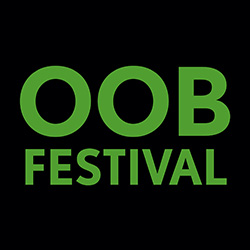
20 Aug OOB Festival Partnership & Interview with NPX!
We can all agree that 2020 has turned out to be a very interesting year. However, that didn’t stop us at OOB from figuring out how to celebrate one act plays and the talented playwrights behind them. Since we couldn’t safely have the this year’s festival in a theatre we partnered with the National New Play Network’s (NNPN) New Play Exchange to share the Final 30 scripts online so that anyone can enjoy them.
Our team is so excited about this new partnership and we wanted to share a recent interview with the National New Play Network’s Executive Director Nan Barnett and the New Play Exchange’s Project Director Gwydion Suilebhan.
OOB: How did the New Play Exchange (NPX) get started?
Gwydion Suilebhan: Nan, I’m curious about how you would tell this story. I’ve told it so many times that I don’t know if I can make it new…
Nan Barnett: It began, as most NNPN programs do, with the recognition of a problem plaguing the nation’s theaters: how to deal with the increasing inadequacies of the old submission model, the myth of the “over the transom” perfect play, and theater-makers who were growing discontent with the increasing power of gate-keepers and the lack of transparency, equity, and fairness in the ways works were selected for development and production.
NNPN was created because of and had actively worked towards dismantling systems that blocked pathways to productions, and, when the zeitgeist yielded several calls for change – Gwydion’s article asking why theaters weren’t using technology to resolve the issue, the Network’s own oft-discussed desire for a shared literary office, and a field-wide conference on literary management that left most attendees frustrated by inaction – NNPN saw an opportunity to do what it does best: began to collaborate on a project to respond to the issues that had become clearly defined and yet not addressed.
As NPX has grown over the years what new tools have you been able to build for playwrights to help them introduce their work to as many industry professionals as possible?
Suilebhan: The goal of the NPX is to facilitate connections between writers and producers. We aren’t focused on quantity, though; we care about quality. We try to help people find exactly the scripts they’re looking for. We try to help writers be discovered by the right people — the people who are looking for them — rather than everybody. The NPX isn’t a mass marketing platform. It’s about turning the noise of mass marketing into a clear and precise signal.
How have other theatre festivals used the NPX platform to either receive/read submissions or promote finalists?
Suilebhan: Absolutely! The Kitchen Dog Theatre in Dallas, for example, has used the NPX to consider plays for its New Works Festival for years, and hundreds and hundreds of others have used the NPX to seek out and consider work via our Opportunities system. In addition, several different organizations, from The O’Neill Playwrights Conference to the Bay Area Playwrights Festival to The Kilroys, have relied on the NPX to promote their finalists.
How has COVID-19 impacted NPX? Have you noticed users interacting with NPX in new or interesting ways?
Suilebhan: The biggest effect we’ve seen is a massive increase in adoption by college and university libraries, who subscribe to the NPX to give their students and faculty access to our digital library of scripts during remote learning. Other than that, there’s really been no slow-down in the growth of our platform, which has gone up steadily for more than five and a half years.
Some of my favorite NPX features are your curated lists and the NPX index – they’re great tools that help facilitate conversations about racial and gender parity in theatre. How else has NPX encouraged theatres to consider curating a more diverse season for their audiences?
Suilebhan: I don’t know that we’ve encouraged theaters directly, but we have made it extraordinarily easy for theaters to find new work by an immense array of artists. It’s not reasonable to say “We couldn’t find the plays” anymore, because they’re right in the NPX. A bit more than half of our writers identify as women, and roughly 30% identify as BIPOC artists. (That number has been growing, but we’re still working hard to make it even bigger.) As for our curated lists and the NPX Index, we use them to showcase the diversity of voices in the NPX database. We want to celebrate and amplify as many different artists as we can!
What are some of your favorite one act plays?
Suilebhan: Personally…I can’t pick. I like to stay neutral, because I really don’t want to be seen as playing favorites. Ask me when I’m not the Project Director of the NPX any more. Nan?
Barnett: Oh, not fair! I was a long time-fan of the now defunct Humana Festival 10 minute plays and one acts, and I love both the OOB Festival and City Theater Miami which produces only shorts, so I’ve read/seen a lot of them. I tend to really love the writer’s I’ve found there, so many of which have wonderful careers with longer form work as well. I met the works of Audrey Cefaly, Marco Ramirez, Lia Romeo, L Feldman, Kelly Younger, Bekah Brunstetter, Vanessa Garcia, Rich Orloff, France Luce-Benson, Will Arbury, and Sherri Wilner among others, through their shorts, and I love never knowing who or what’s coming next. Of course, a Steve Yockey short is always a guaranteed good time!



